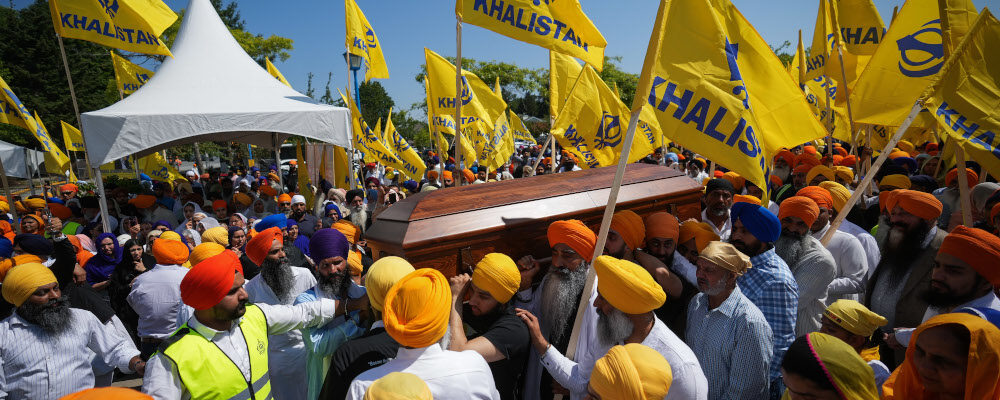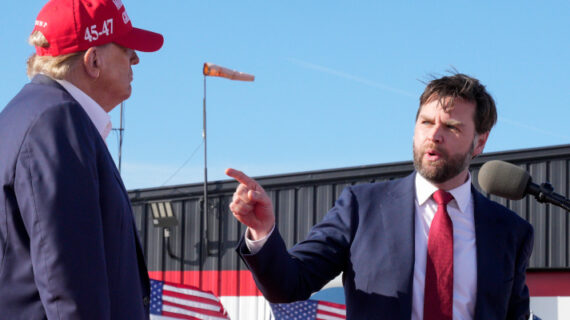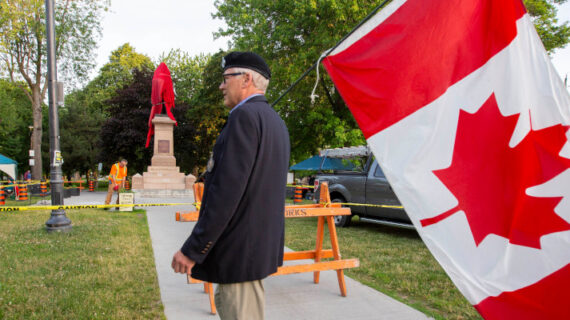Editor’s note: On September 18, 2023, Prime Minister Justin Trudeau stated in the House of Commons that Canada’s security agencies are “actively pursuing credible allegations” that “agents of the government of India” were involved in the killing of Hardeep Singh Nijjar in June.
Last month a prominent Sikh leader in Surrey, Hardeep Singh Nijjar, was assassinated in the parking lot of the region’s largest temple. It comes after months of fairly charged discussions about Chinese government interference in elections and society.
The common thread between these events is that diaspora politics is intruding into our broader discourse. Yet, the Canadian body politic seems wholly unable to discuss the issue, much less craft policies that effectively deal with these situations. This is vitally necessary, considering that the historic levels of immigration Canada is currently seeing will grow diaspora groups and magnify the potential issues involved.
The underlying reality is that all diasporas participate in the politics of their home states to some degree. The overwhelming majority of these interactions are benign and even beneficial, strengthening civil society actors, democratic institutions and political development in the countries of origin. In cases where there’s an ongoing conflict, its repercussions will inevitably be felt within Canada. The effects are as varied as the situations they stem from, often as actors from the state of origin will seek to exploit Canada as any opportunity will allow.
A common effort visible in Canada is fundraising or political mobilization. This is not necessarily nefarious or unwelcome. For example Canada’s Ukrainian community has worked hard to build up political support and collect aid for Ukraine during the ongoing Russian invasion of their country. Another example was the the No Farmers, No Food movement in 2020 against land reforms that would disproportionately affect Sikh farmers in India. Political organization can be a positive force that should not be discouraged.
Yet the types of activities can, and have, expanded to coercion and violence. In the 2000s during the throes of the Sri Lankan civil war, agents of the Liberation Tigers of Tamil Eelam imposed a war tax on diaspora members in Canada employing among other things, violence against them and family members in order to ensure compliance. Canada itself can be a battleground for these conflicts and the largest terrorist attack on Canadian citizens was the bombing on Air India 182 that left 329 dead.
The potential for diasporas to be drawn into a foreign conflict, willingly or unwillingly, is clear. Yet Canada’s political culture has been almost wholly unable to grapple with this reality. It’s an ironic situation, considering how integral immigration and multiculturalism is to the country’s self identity. There are a number of reasons for this, including a lack of cultural knowledge but one of the most prevalent is a fear of insensitivity among many Canadians, in order to avoid any semblance of racism.
Often this hesitance is exploited by actors for their own purposes. A recent example has been any effort to investigate Chinese communist party infiltration into Canadian society, such as with overseas police stations. Yet the act of trying to investigate these and other efforts, no matter how well-reasoned, is condemned as racist. One can recall in 2010 how then-CSIS director Richard Fadden was censured for his claims that China was attempting to infiltrate Canadian political institutions, or more recent efforts to establish a foreign agents registry.
This situation highlights the groups who likely suffer the most about Canada’s inability to discuss these issues: the diasporas themselves. Most immigrants come to Canada in search of a better life and opportunities, in many cases leaving the conditions of their home country behind. This is particularly true of refugees, who may be fleeing persecution, or overall strife. Yet due to Canada’s political immaturity towards these issues, they are often condemned to remain in the grasp of the same situation, replicated in Canada.
This was clearly revealed over the past several months with respect to Chinese government foreign election interference, where Canadian human rights activists and other groups have reported direct harassment from Communist Party interlocutors, seeking to counter their agenda. Canadians, no matter their background, should have the freedom to express their political views freely and without persecution.
This is not to say that the government has completely abrogated its responsibilities in this area. Rather it has led to a strange political stasis.
CSIS and other national security bodies are active in these communities, trying to stem the tide. It was reported that in the weeks leading up to his assassination, Nijjar was warned by CSIS about credible threats to his life. Yet they can do so much absent of clear political direction and fears of their actions being construed as racist.
This is a problem for a number of reasons. Part of the issue is national political groups, which can tend to regard diasporas as monolithic blocks. Lacking awareness but desiring their support, Canadian candidates can be captured by entities or individuals that purport to represent these communities but support a particular agenda. The recent revelation that Toronto Mayor-elect Olivia Chow unknowingly received support from Pro-CCP groups during the election race is one in a long history of examples.
This is part of the challenge. Canadians require a greater awareness of the political dynamics that underlie these issues. They need not be squeamish about learning more if it is done respectfully and with honest intentions. Continuing this status quo and avoiding these subjects may result in the exact situation that everyone wants to avoid: a rise of intolerant sentiments in the country.
It will embolden racist groups to exploit the situation within the country to attack “outsiders,” sow division and leave the most vulnerable in an even more parlous state. The country, its politicians and population, should and must do better for all Canadians’ benefit.




